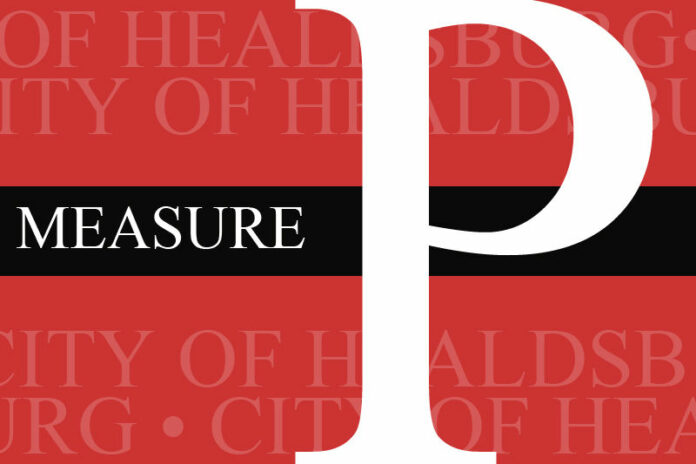Initiative aims to provide median-income housing
Healdsburg’s Measure P, an initiative that would allow for the construction of 50 “income restricted” multi-family rental units per year, projected to pass Tuesday night with nearly 55 percent of the “yes” votes and 45 percent of “no” votes according to the Sonoma County Registrar of Voters.
Despite the apparent passing of the measure, the final count will not be official for another 30 days. The controversial measure also marks a turning point for the city’s growth management, amending the ordinance (which was adopted by voters in 2000 limiting growth and development) to allow for the construction of more affordable housing.
The definition of affordable housing has different meanings throughout the country, but for an affluent town in the tourist destination of Sonoma County, “affordable” refers to the demographic that makes too much money to be eligible for low-income housing but not enough for market rate homes (homes provided by the private sector with no government subsidies or pricing restrictions).
Numerically speaking this would refer to the demographic making between $101,000 and $134,000 according to the Healdsburg city profiles and projections report from the Sonoma County Economic Development Board.
“We have only been able to build 30 housing units a year because of the growth ordinance and as part of that people naturally built larger homes and mansions and less smaller, more affordable homes,” Healdsburg Council member Shaun McCaffery said. “There is a need for housing for people making too much for low-income housing but cannot afford market rate homes.”
According to the same report, the median price for a home in Healdsburg is around $804,000, the second highest price on record for the city.
While the race was initially tight early in the evening with 53.1 percent “yes” votes and 46.9 percent “no,” other precincts started turning in more numbers around 2:30 a.m. Wednesday morning and the measure was projected to pass.
“My reaction is one of relief. I have put a lot of effort into this measure that is designed not to exacerbate the housing issue, but to help people who want to live and work in Healdsburg,” McCaffery said.
In years past, the city has tried to tackle affordable housing with the 2016 measure, Measure R, which asked voters to nix growth management and implement a specially regulated housing plan. The measure did not pass. The city has also implemented local preference provisions, mandating which qualified affordable housing applicants would get to be first in line for local housing projects. This preference was created for applicants who live and work in Healdsburg and was used in developments such as Chiquita Grove, 1201 Grove Street and the Sorrento housing projects. Yet, despite these attempts to bolster affordable housing in the city, projects were still limited to the 30 units a year growth management ordinance.
However, election results suggest that voters favor a new approach to growth management.
Measure P allows for the construction of 150 units in a three-year period and will be restricted to renters making no more than 160 percent of the median income, in other words, those in the $101,000 to $134,000 earning demographic will be eligible.
Not everyone believes Measure P is the way to address affordable housing in Healdsburg.
In a letter to the editor Healdsburg resident Ann Caranza voiced that the measure should be cater to a different demographic in order to help families who make less than the 160 percent of the median income.
“Measure P is aimed toward those who make between $101,000 and $134,000, 17.5 percent of the population… Healdsburg’s median income, according to EDB’S report, is $63,224. Does it make sense to target 17.5 percent of the population when 68.1 percent of the people earn less?” Caranza wrote.
While Caranza commends the city for working “diligently” on the issue, she believes the measure is a boondoggle.
In a previous Measure P article, skeptic Richard Burg, a former city housing committee member, told the Tribune, “Measure P is not a solution to the problems with the GMO (growth management ordinance).”
On the other end of the spectrum, Healdsburg Vice Mayor David Hagele said he was happy to see the measure pass.
“This is a key, narrowly focused measure that addresses a narrow demographic of workforce and middle income (folks), and for those who want to live and work in Healdsburg, this segment of housing is in dire need, ” Hagele said. “I am happy it passed because it (provides) a product that has been lacking for almost 20 years. It gives people a little bit of hope and will make it easier for (housing).”
46.5
F
Healdsburg
April 19, 2025








